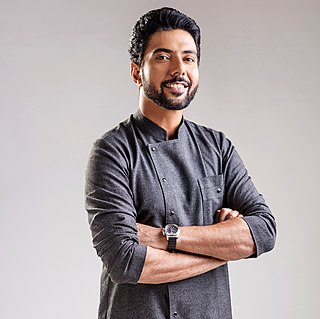A Quote by George Orwell
Roughly speaking, the more one pays for food, the more sweat and spittle one is obliged to eat with it.... Dirtiness is inherent in hotels and restaurants, because sound food is sacrificed to punctuality and smartness.
Related Quotes
Somewhere between 50 to 60 percent of the food you eat has been touched by immigrant hands, and it is fair to say some of them are not here as they should be here. But if you didn't have these folks, you would be spending a lot more - three, four or five times more - for food, or we would have to import food and have all the food security risks.
I think there are two ways of eating, or cooking. One is restaurant food and one is home food. I believe that people have started making food that is easy that you want to eat at home. When you go out to a restaurant, you want to be challenged, you want to taste something new, you want to be excited. But when you eat at home, you want something that's delicious and comforting. I've always liked that kind of food - and frankly, that's also what I want to eat when I go out to restaurants, but maybe that's me.
Between food and fashion, there's always a direct correlations - designers have forever done prints with food on them. Vegetables, fruit, apples. There are some beautiful prints that have been made with fruit over time. I think food and restaurants have become more and more fashionable over time. That's become more of a fashion thing than fashion becoming a food thing. I don't think fashion has gotten so food oriented in the reverse aspect, but I think the whole food industry has gotten very design oriented. I think it's a nice way of putting things together.
I was doing shows and flying economy, and nobody ever fed me. Or I'd be staying in hotels so cheap that by the time I'd get in, there wasn't any room service. I didn't eat for a long time. Not on purpose. You'd be on shoots with bad food or get on a plane, and the food would be so disgusting you couldn't eat it.






































